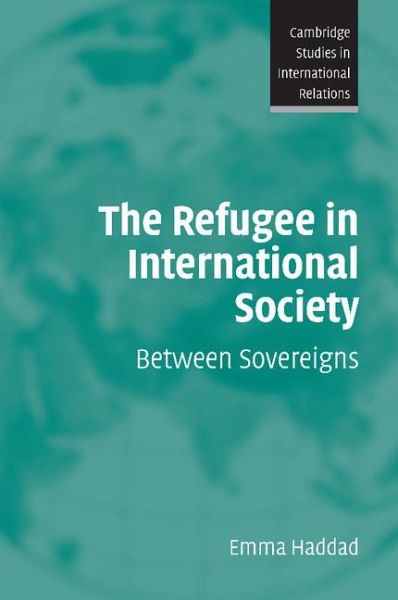
The Refugee in International Society
Versandkostenfrei!
Versandfertig in 1-2 Wochen
35,99 €
inkl. MwSt.
Weitere Ausgaben:

PAYBACK Punkte
18 °P sammeln!
With the unrelenting unrest in places such as Iraq, Afghanistan and the Sudan, the plight of refugees has become an increasingly discussed topic in international relations. Why do we have refugees? When did the refugee 'problem' emerge? How can the refugee ever be reconciled with an international system that rests on sovereignty? Looking at three key periods - the inter-war period, the Cold War and the present day - Emma Haddad demonstrates how a specific image has defined the refugee since the international states system arose in its modern form and that refugees have thus been qualitatively ...
With the unrelenting unrest in places such as Iraq, Afghanistan and the Sudan, the plight of refugees has become an increasingly discussed topic in international relations. Why do we have refugees? When did the refugee 'problem' emerge? How can the refugee ever be reconciled with an international system that rests on sovereignty? Looking at three key periods - the inter-war period, the Cold War and the present day - Emma Haddad demonstrates how a specific image has defined the refugee since the international states system arose in its modern form and that refugees have thus been qualitatively the same over the course of history. This historical and normative approach suggests new ways to understand refugees and to formulate responses to them. By examining the issue from an international society perspective, this book highlights how refugees are an inevitable, if unanticipated, result of erecting political borders.




